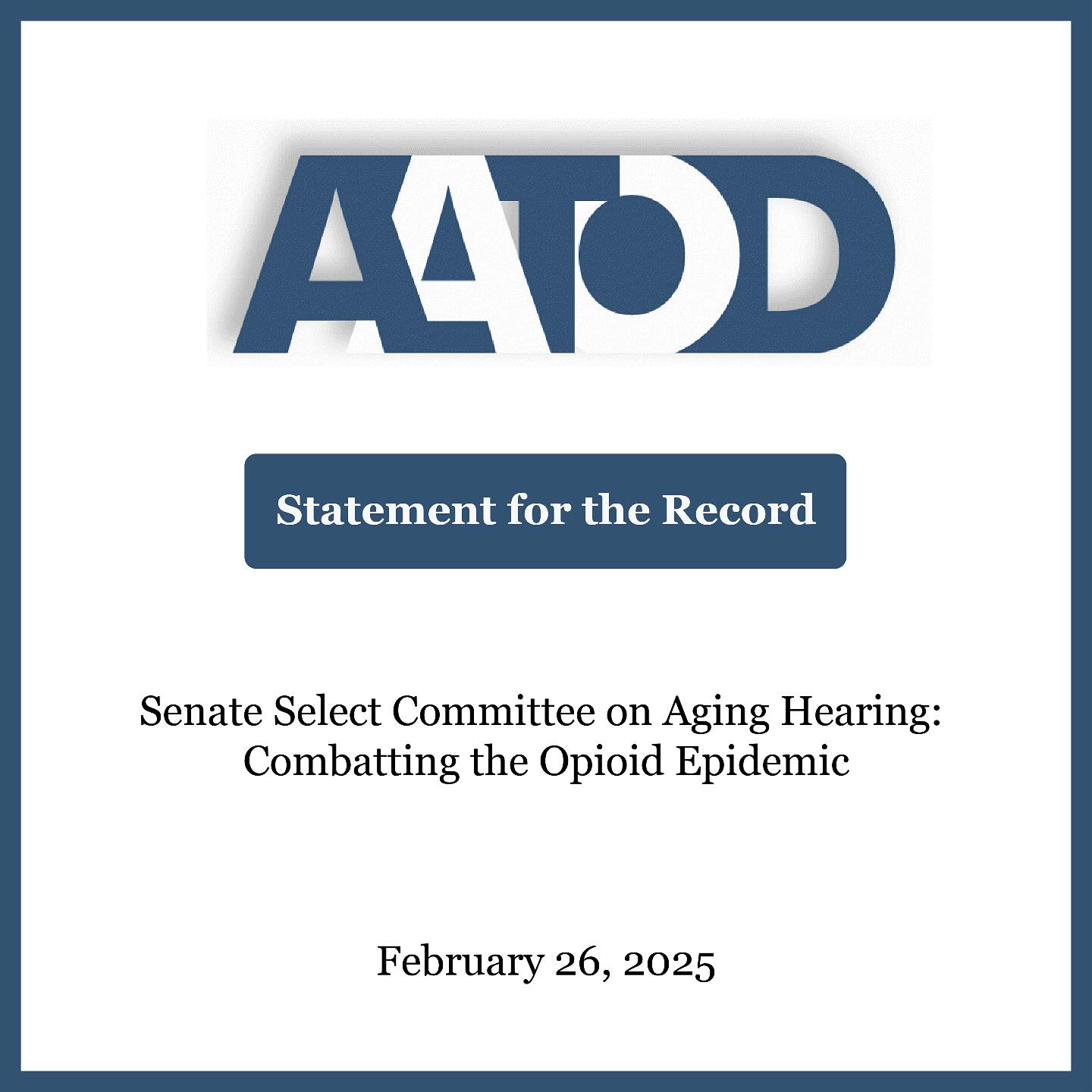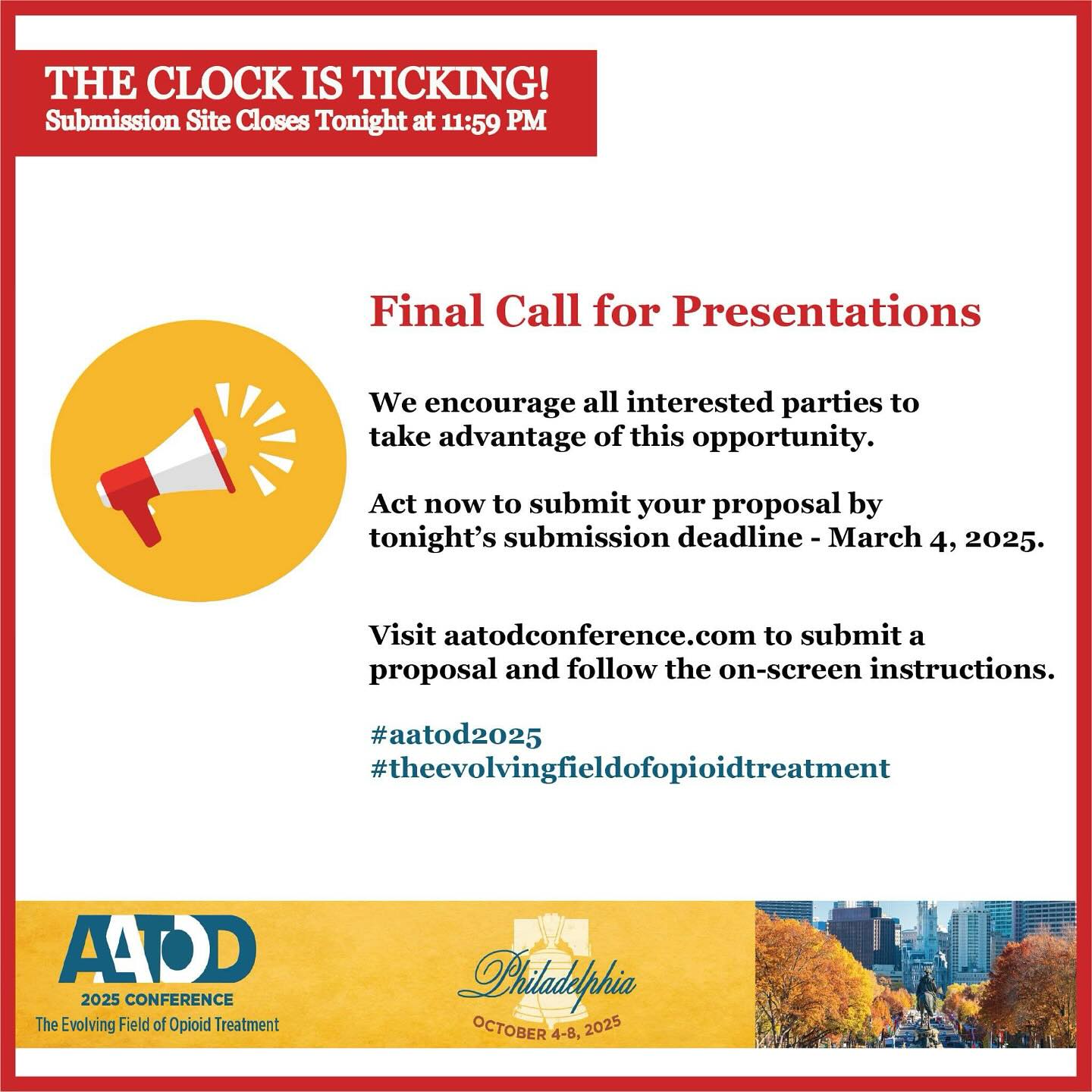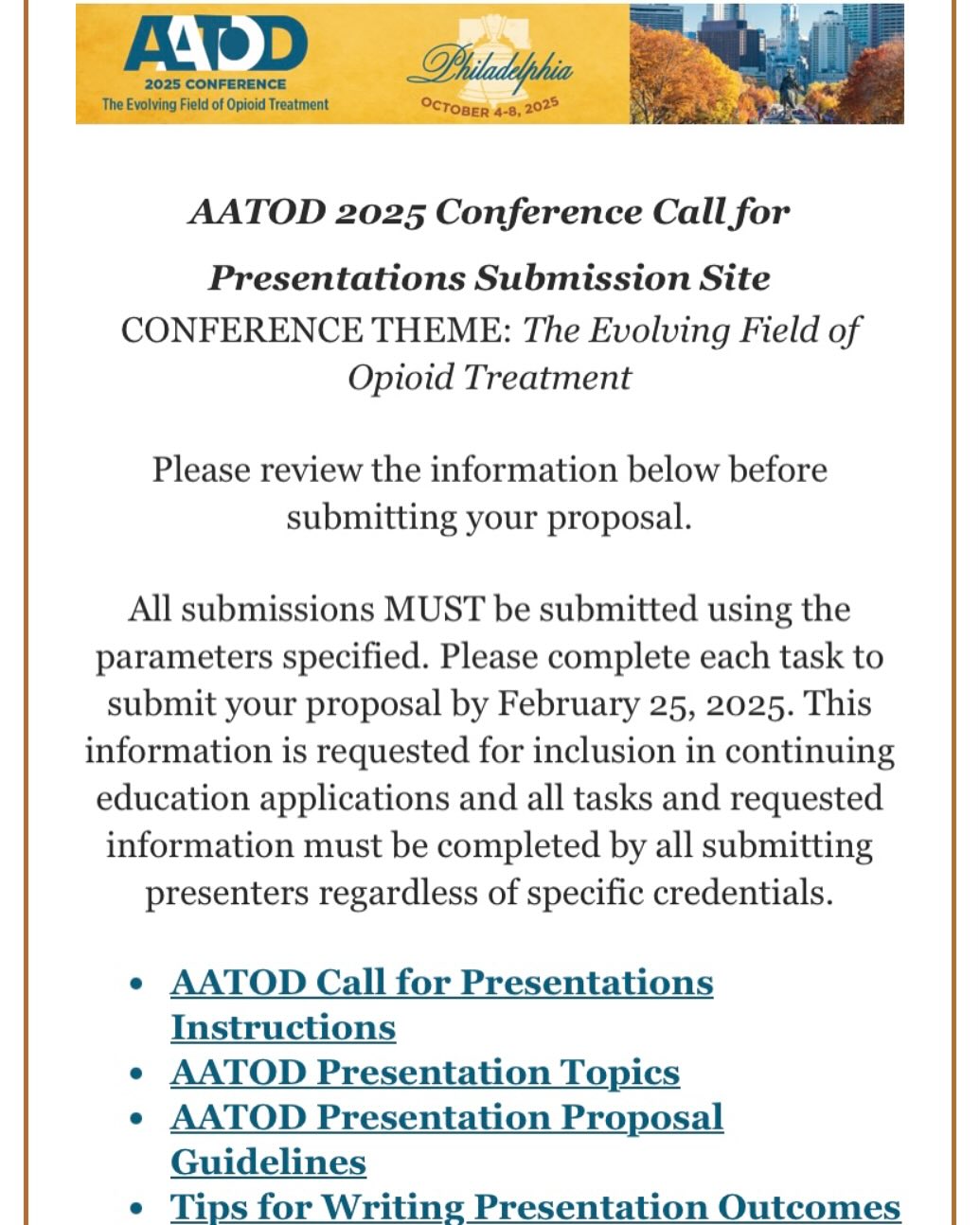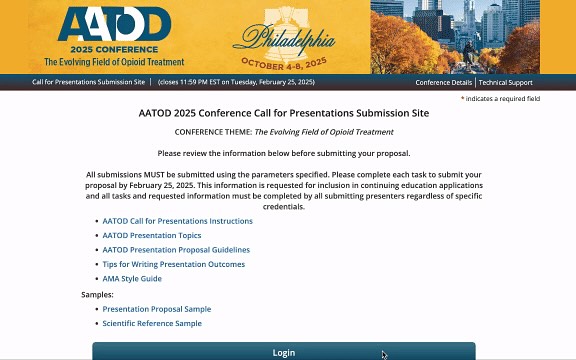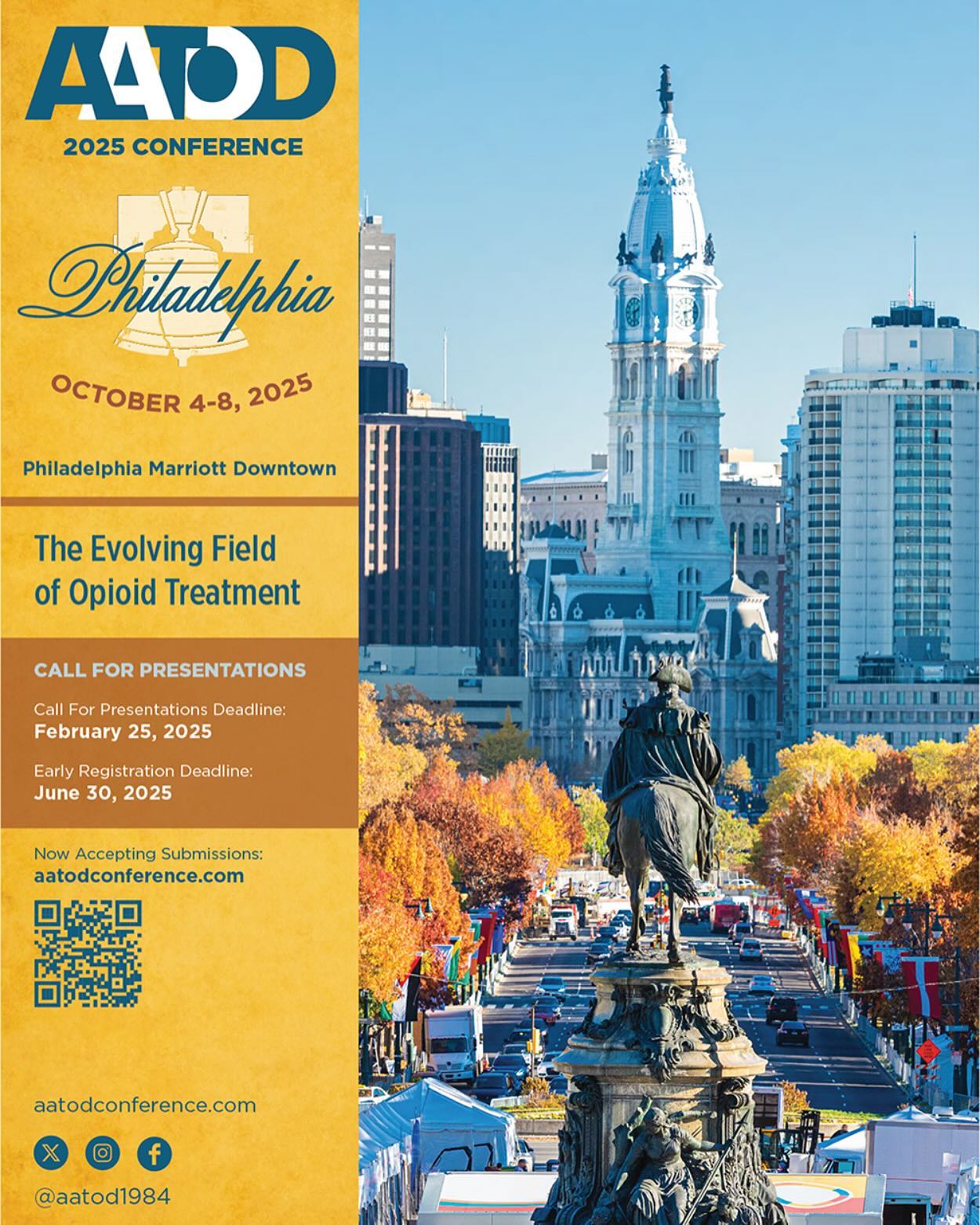The American Association for the Treatment of Opioid Dependence works with federal and state agency officials concerning opioid treatment policy throughout the United States. We also work with our partner, the World Federation for the Treatment of Opioid Dependence, with regard to international initiatives and working with designated agencies within the United Nations.
The Association also convenes conferences on an 18-month cycle. These conferences focus on evidence-based clinical practice, current research breakthroughs, and organizational developments affecting the current and future opioid treatment system.
AATOD is also working closely with the Substance Abuse and Mental Health Services Administration on the production of three groundbreaking policy papers which develop future blueprints for OTPs as essential hub sites, working in conjunction with other parts of the healthcare and criminal justice systems. Each of these policy papers tackles major initiatives, which will encourage the integration of OTP services with a number of spokes, building on the success of Vermont’s hub and spoke model. One paper addresses integrating OTP services in conjunction with primary and behavioral healthcare services. Another paper provides models for OTPs to work with drug courts, correctional facilities, child protective services, and family courts. Each of these systems provides different challenges to OTPs but the paper outlines methods of engaging each of these critically important policy partners. The third paper focuses on the utilization of Health Homes with OTPs, based on the Rhode Island and Maryland models, and there is a comprehensive exploration of how the Vermont Hub and Spoke model operates.
AATOD is also embarking on a major Medicaid reimbursement utilization initiative in 2016, focusing on 17 states that currently do not provide Medicaid reimbursement to OTPs for the use of any medications and services in treating opioid addiction. In each of these states, patients can only access care if they either pay out of pocket or have good commercial insurance coverage. In this case, the utilization of OTP services is lower when compared to states that do provide Medicaid reimbursement to OTPs in using medications for opioid addiction.
AATOD is continuing its work with the Denver Health and Hospital Authority and the RADARS™ System. We manage 75 Opioid Treatment Programs as part of the mosaic of different systems within RADARS™. Readers can link HERE to the RADARS™ System website for more information.
We are currently working to produce our next conference in Baltimore, Maryland, at the Marriott Waterfront Hotel between October 29 – November 2, 2016. We are fortunate to have the support of the State of Maryland Alcohol and Drug Abuse Administration together with our partners in the Maryland OTPs. Vickie Walters will be Chairing this conference and materials can be found here.
We will continue to work with our associates in EUROPAD and the World Federation for the Treatment of Opioid Dependence.
Finally, our staff and Board of Directors worked tenaciously to promote the interests of our program members, but it is through the unity of all of our policy partners that we are able to increase the public understanding of what we do in the treatment system at a critical point in increasing access to evidence based practice in an era of untreated opioid addiction.












